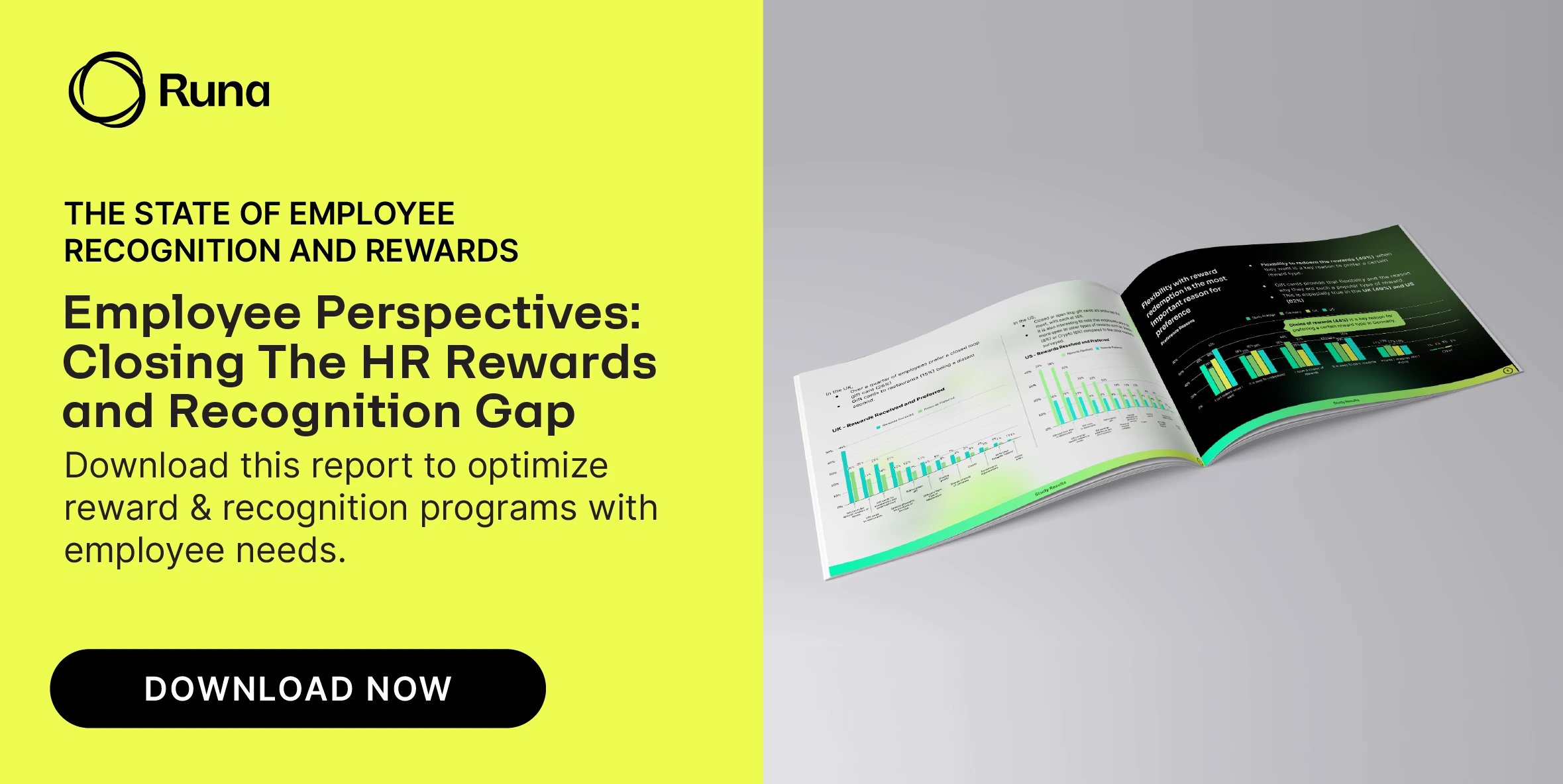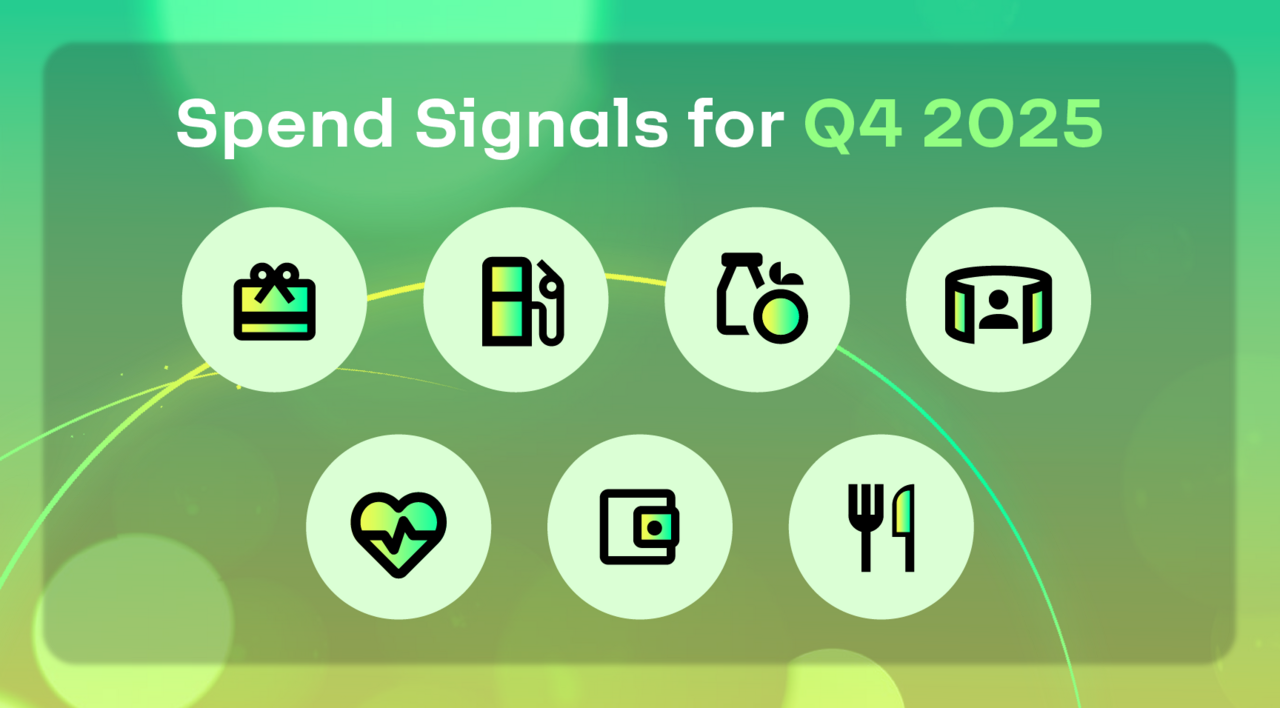Maintaining high employee morale and retention are crucial for the success and growth of any organization. Happy and motivated employees not only perform better, but they also contribute to a positive and collaborative work culture. According to our research, The State of Employee Recognition and Rewards, nearly two-thirds of survey participants say employee rewards are important in their decision to stay with an employer; but only one in three are satisfied with the type of rewards they receive from their employers and how they are administered. It’s time for HR leaders and managers to think beyond the occasional perks or team-building activities.
Boosting employee morale and retention requires a thoughtful and sustained rewards and recognition program that fosters an environment where they thrive, teams flourish, and organizational goals are met with enthusiasm and dedication.
Establish a Regular Employee Rewards Cadence
Over one out of five employees we surveyed revealed that there is no regular frequency of rewards from their employers. The simplest way to improve employee morale is to reward them (more) regularly. Rewarding and recognizing employees is not something you check off a list. To actually build a culture of appreciation, organizations have to embed recognition into their DNA. If you have annual employee awards, consider adding smaller, more frequent and more meaningful rewards throughout the year. This way recognition becomes the norm and it doesn't become for show.
Highlight and Identify Unsung Heroes
Employee rewards and recognition programs are typically designed for performance-based awards that may leave some team members empty handed. Organizations can boost employee morale and retention by highlighting unsung heroes. This is a way to recognize your team, because they’re outside of the box, fun, engaging, and celebrate people's contributions that we wouldn’t necessarily observe day to day.
Here are a few inspired ideas to reward unsung heroes at work:
- Peer recognition: Implementing a peer-to-peer recognition component within the reward program allows employees to nominate and acknowledge their colleagues who consistently go above and beyond their duties. This empowers employees to shine a spotlight on unsung heroes who may not receive widespread recognition otherwise.
- Employee feedback and surveys: Gathering feedback from employees through surveys or feedback mechanisms can help uncover individuals who are highly regarded by their peers but may not be in the spotlight. By seeking input from the entire workforce, organizations can identify those who consistently make a positive impact and recognize them accordingly.
- Long-service recognition: Unsung heroes are often found among employees who have dedicated many years of service to the organization. Implementing long-service recognition programs can help identify and appreciate these individuals who have quietly contributed their expertise and loyalty over time.
Encourage Work-Life Balance
Supporting work-life balance is crucial for maintaining high employee morale. Encourage employees to take breaks, use their vacation days, and unplug after work hours. Implement flexible work arrangements or remote work options when feasible. Show understanding and support for personal commitments and family needs. By promoting work-life balance, employees feel more satisfied, energized, and motivated.
Foster a Sense of Belonging
Creating a sense of belonging and inclusion positively impacts morale. Encourage team-building activities, both in-person and virtual, to foster connections among employees. Celebrate diversity and create an inclusive workplace where every voice is heard and valued. Establish employee resource groups or affinity networks to provide a space for employees to connect based on shared interests or backgrounds.
Give Employees Choice
Pleasing everyone is a challenging task, and organizations often fall short in their attempts. Organizations can close the employer-employee gap and boost employee morale and retention by aligning HR reward & recognition programs with employee preferences by providing a catalog of digital gift cards. Over 6 in 10 employees (61%) mention a gift card as their preferred reward type. So while company swag is often a go-to choice, employees may find it cheap or impersonal unlike digital gift cards.
Digital gift cards are not only an effective reward to give employees a choice in what they receive, they allow employees to choose when they redeem their rewards. 49% say that flexibility to redeem rewards when they want is a key reason to choose a certain reward type. Gift cards provide that flexibility which is why they are such a popular type of reward. Runa can power your program with a flexible and varied network of merchant partners, letting you instantly send payouts across the globe. See how embedding powerful payout experiences into your HR management systems so teams can attract and retain talent. Request a demo.


.png)

